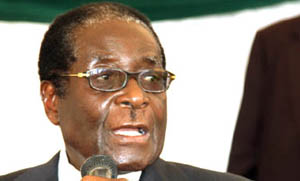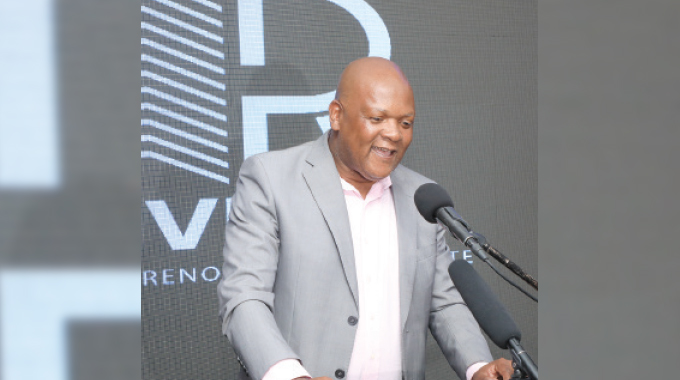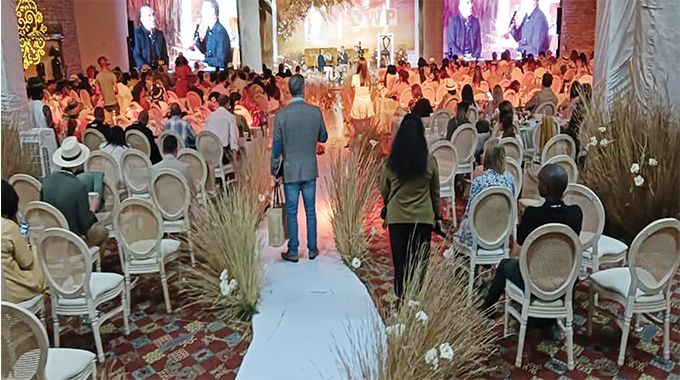DW wrangle rages on
manager, Mr Cecil Madondo, issued shares to Elgate Holdings before verifying that they had been paid for.
Elgate won the bid to acquire a 52 percent controlling stake in the ailing textile company in 2007, ahead of other suitors vying for the firm. The transaction was conducted under Mr Madondo’s supervision.
Information gathered from a number of senior managers revealed Mr Madondo “rushed” to allocate shares to Elgate without “checking” to establish that Elgate had fully paid for them.
Mr Madondo had acknowledged that about US$3 million was paid.
This was equivalent to 28 percent of the DW issued shares. The new shareholders were supposed to inject US$5,4 million.
The remaining US$2,4 million was to be paid later, but under the supervision of the Master of High Court, Mr Charles Nyatanga.
In February 2008, Mr Madondo, probably sensing some anomalies that could have occurred in consummating the deal, conducted a verification exercise to establish if the US$3 million had been paid.
That was when it was established that Elgate “had injected only” US$1,8 million. The managers said the funds “largely came in the form of raw materials”.
Ironically, while Mr Madondo acknowledges that Elgate paid the US$3 million, he has on several occasions called for an external audit.
“It really shows that Mr Madondo made a blunder to issue shares without verifying whether the funds had been injected,” said one manager who asked not to be named.
“There was no real cash injected into DW. The money was coming in the form of raw materials and this was subject to very serious manipulation.
“This is where the discrepancies are coming from. There was an oversight on the part of Mr Madondo and his team in the way the deal was done.”
Mr Madondo yesterday confirmed that the injection of US$1,8 million was supported by documents.
“Only US$1,8 million is supported by documents. We failed to locate documents supporting the balance of US$1,2 million and this is why we have been calling for an external audit,” said Mr Madondo.
Some sources have also suggested the need to appoint an independent investigator to establish how much Elgate paid for the DW shareholding.
“The question which authorities should now ask is why Mr Madondo opted to resign before Elgate had fully discharged its share subscription agreement with DW.
“Secondly, what did the judicial manager do when his verification report exposed that Elgate had not paid the US$3 million he had acknowledged before?
“What did he do with that verification report?
“Then, it is said the other US$2,4 million was paid under the supervision of the Master of High Court. I think this ‘alleged’ inflow of funds into the company must be thoroughly investigated.”
Mr Nyatanga recently wrote to the Judicial Service Commission acknowledging that the outstanding amount was fully paid.
“As far as I am concerned, I had to get confirmation of the balance of US$2,4 million. This was tendered to me on or about May 30 2008 by the then chief executive officer.
“I had no reason to doubt his letter since he is the same chief executive who received and acknowledged the US$3 million on behalf of Mr Madondo,” said Mr Nyatanga.
DW was first put under judicial management in May 2005 before the management order was cancelled in May 2008. It continued struggling and was placed under a similar reconstruction plan under Mr Wenseley Militala, in December last year.
The company’s factories in Kadoma, Chegutu and Gweru have been closed after Kithra Enterprises, a private company which was renting the factories, pulled out under unclear circumstances.
The company was once the largest textile manufacturer in Zimbabwe, employing nearly 3 000 people. But it has been severely disadvantaged by the unfriendly economic environment.










Comments